Alles was Sie brauchen, auf einen Blick
Unsere Erkenntnisse sind detailliert und gut recherchiert. Sie behalten den Überblick darüber, was auf dem Markt passiert, und ermöglichen es Ihnen, der Konkurrenz immer einen Schritt voraus zu sein.
Sign up to our newsletter to get exclusive insights and never miss an article.

One of the key aims of MMO Freelance is to help our freelance members connect with each other. Through freelance events, guest blogs and personal introductions, we’re hoping to create a freelance network that is better connected and hopefully able to lend a helping hand to each other through project leads, introductions, or just a Friday beer.Here’s a guest blog from one of our freelance members – Florin, a former PwC consultant.
How long have you been a freelance consultant?
and what is your industry focus?My first big contract was in 2014 with Holidog, a French marketplace start-up for pet owners, but that turned into a permanent stint rather after just a couple of weeks. I’d say I have started seeing myself as a full-time independent consultant about a year ago. Since then, I’ve worked with a couple of start-ups (FinTech, PropTech) as well as corporate clients in Banking, Insurance and Telco. I focus on a rather broad space –helping my clients make use of the ever-evolving technology landscape to stay on top of their game, innovate, enter new markets or find a product-market fit for new services. Having been a consultant and a tech entrepreneur, knowing the challenges on both sides, that really helps tailor my proposition and add credibility.
Why did you decide to become a freelance consultant?
A lot of people start freelancing to fill a period of transition. Certainly, that’s what happened with me. I had been a consultant for 5 years, then started working with start-ups during a sabbatical. One of those contracts became a permanent gig which lasted 2.5 years. At the end of it, I found myself wondering: do I go back to consulting? – which I almost did – or do I do my own thing? And eventually, the entrepreneurial spirit prevailed. Doing my own thing is important and my key strength is, in fact, being a consultant – the two came together, a bit like a Venn diagram.
What most surprised you?
About the change from perm to freelanceWhat surprised me most is how many ‘established’, large companies use independent consultants even on strategic questions. Having worked with 20-30 major clients before, I can’t recall coming across independents unless it was a project management support role, with very confined attributions. I think the consulting industry is going through a transition period though, and the gig-economy has definitely matured so I can post-rationalise it. It’s still surprising when you find yourself in the middle of it.
What one thing would you really want to know?
If you were to just be considering the move to freelance consulting nowWell – I did it progressively, following a sabbatical and a long stint with a start-up so I warmed up to it, didn’t jump into the cold water so to speak. Certainly, there are a lot of projects out there and of course, there is movemeon that can really really help take the first steps, but the space is competitive, no question. The most important element long term is the relationships that one builds along the way and of course, the credibility you gain through this network. Other than that, what I didn’t expect or plan for was the cyclicality that even larger consulting firms experience. That becomes even more tangible as an independent consultant. I remember having pushed about 17 full-blown proposals one month which finally resulted in one project. I was drained at the end of that period. Another one of those proposals resulted in the client asking me to do a different project a couple of weeks later so I guess the ratio wasn’t that bad in the end; but even so, that specific time was rather daunting.What followed after was a period when I actually had to turn down work. It may seem like a great problem to have but still needs a well thought-through approach – think of a repeated game in game-theory. That’s definitely a major aspect that I’d underline – to be comfortable with the cyclicality of things. On a different note – I am really happy to have a talk about ups and downs with anyone who has questions. Absolutely, do reach out if you read this.
One main pro & one main con of freelance consulting?
Ohh, there are a lot of pros. The obvious ones are the flexibility and having the actual choice of really working on projects that one wants to work on. Financially it’s not too bad either. The cons are the uncertainty around what happens at the end of a project – but at least it’s in your own hands. And of course, not having an actual team of analysts help with proposals or critical deadlines. Overall, I think I work much longer hours than I was in any other previous role, but it feels very different. It’s all an investment into myself, so it’s much easier to do the late hours and the weekends. And of course, being occasionally able to ‘pull’ these hours from a beach or a pool is a big plus as well.
Would you consider going back to perm?
I wouldn’t exclude it completely but certainly not in the short-term. I am enjoying freelancing too much to commit to something full-time even though a role like that may exist somewhere. Maybe I would have given a different answer a couple of months back, but after one year, I’m looking at the whole game differently anyway. I’m not ‘just’ freelancing but building a consulting practice. Through the start-up work, I have access to a very strong network of designers, product managers, data scientists that could help me downstream, after an initial strategy piece. Certainly, that’s where I see this going. It’s very early days though so who knows how it evolves, but ideally, this is my permanent role.
Looking for a freelance opportunity?
Click here to have a look at our live jobs
Not a member yet?

One of the key aims of MMO Freelance is to help our freelance members connect with each other. Through freelance events, guest blogs and personal introductions, we’re hoping to create a freelance network that is better connected and hopefully able to lend a helping hand to each other through project leads, introductions, or just a Friday beer.Here’s a guest blog from one of our freelance members – Matt, a formerLEK Consultant.Are you looking for a freelance opportunity as well?Click hereto browse all our live roles
Why did you decide to become a freelance consultant?
After working at LEK for more than 3 years, and spreading my time out across multiple offices and continents, I decided that it was time to get some new experiences outside the institutional consulting bubble. Although I hadn’t found a full-time role I was interested in committing to, I felt like the time was right to make a move. Freelancing seemed to be the sensible middle ground. It offered maximal flexibility, good money, and it gave me the luxury of time to decide the direction I wanted to go in.
What most surprised you?
About the change from perm to freelanceHow easy it was to make the move from full time to freelance. There are so many people who have done it before that are willing to give you guidance and there are many organisations out there to make your move easy and smooth. Movemeon was an incredible resource while I was making the transition, it gave me the confidence of knowing that there was ample work out there that would actually interest me.
What one thing would you really want to know?
If you were to just be considering the move to freelance consulting nowHow easy it is to make the move, and to escape the treadmill of a large consulting firm.I remember feeling the typical angst you associate with stepping into the unknown and leaving without another ‘real’ job. It seemed like a common story, being ready to move on but being afraid to take a leap of faith unless conditions were perfect. So just do it, if you are ready to leave, just leave. Take a break, pick up a few months of freelance work while you get some perspective on what you really want. You can always go back to full time consulting if things don’t work out in a way that sits right with you. It’s important to remember that you spend a majority of your time in the workplace and if you need a change, for whatever reason, it’s down to you to make it happen. Freelancing may seem daunting at first but with all the resources out there at your disposal, like movemeon, it’s really not as scary as you think.
Why did you go back to perm?
The right full-time role came around in a small healthcare company that I couldn’t turn down. It was offering me the opportunity to utilise the expertise I gained from my first career as a doctor with the skills I had learnt from consulting. If this specific role hadn’t come around, I think I would still be happily freelancing.
Looking for a freelance opportunity?
Click here to have a look at our live jobs
Not a member yet?

Freelancers are happier, work fewer hours & are paid better
Since starting movemeon, we’ve noticed a trend of increasing interest in freelance consulting. In our first year of operating, just 20% of our members were interested in hearing about freelance roles. In the start of 2019, this has more than doubled to just under 50%.This increased interest has driven increased quality. There have been some, often well talked about, structural changes that have supported this:
- Acceptance of new ways of working, and a change in expectations that people show long-term loyalty to a company
- Increase in the number of people setting up their own businesses
However, in this article, we wanted to dig a bit deeper into why people were being increasingly drawn to freelancing.
Our survey
We run an annual compensation survey for consultants and alumni. After a number of requests for more transparency in the market, this was our first year in sending a separate survey to freelancers.The conclusions were stark:
- Freelancers are happier at work
- Freelancers are happier with their pay
- Freelancers work fewer hours
1. Freelancers are happier at work
We asked ex-consultants in full-time and freelance roles, how satisfied they were with their jobs. Freelance consultants averaged at 7.5 out of 10; those in full-time roles just 6.9.Given the size of the sample, this is a huge difference, and allows the simple conclusion – freelancers enjoy work more.In terms of why this is, there have been a few trends in the responses we’ve received:
- Control over what work you do: you get to decide not only who your clients are, but also what projects you do
- Control over when you work: just as importantly, many have cited the ability to control when they work as a key driver of satisfaction; work can fit around you and your schedule
- Less admin/ bureaucracy: many have mentioned they can concentrate on their project work without the internal admin/ bureaucracy to navigate
2. Freelancers are happier with their compensation
Whilst the average happiness of compensation was below that of job satisfaction (it was ever thus!), there are still stark differences. People in full-time roles averaged 6.6 out of 10 for satisfaction with their compensation; freelancers were 7.2.Across our respondents, the average compensation received from freelancing in the year was £118k, however, this encompasses a broad range of annual compensations from £15k to £227k.Unsurprisingly, utilisation (number of days worked as a percentage of total working days in a year) was the main driver of the differences, with the following distribution:
- Lower quartile utilisation: 44% (110 days)
- Median utilisation: 64% (160 days)
- Upper quartile utilisation: 80% (200 days)
3. Freelancers work fewer hours
An additional factor in the satisfaction of both compensation and work is the average hours worked per week. Freelancers worked 20% fewer hours per working week than full-time employees: 41.2 vs 51.3 hours.Interestingly, respondents suggested this wasn’t the result of fewer hours on client sites; instead, it was a direct result of:
- Being closer to the end client and being more aware of the required deliverables (i.e., increase in effectiveness as you lose the layers of communication)
- Less admin than in larger businesses
It was likened, by a few, to “agile delivery”.
Why should employers be happy about this
In one word – quality.When you’re procuring consulting support, it’s because there is a large potential opportunity. The biggest determinant of how much of that opportunity is realised is the quality of the work.The structural changes mentioned in the introduction laid a great foundation for freelancing to be accepted as a career choice. However, the numbers in this article show why it’s being seen as such an attractive career choice: freedom, fairer compensation and a more balanced lifestyle.It’s these changes that are the driving force between the quality of freelance consultants that we’re seeing in the marketplace. Gone are the days where freelance offered an alternative for someone who had been “managed out” of consulting – the new breed of freelance consultants have made the active decision to be freelancers. Whether it’s a temporary choice (between roles; whilst starting a business up) is irrelevant; the more important fact is it’s seen as more prestigious and attractive as a career choice.Businesses are therefore increasingly able to hire consultants who have not only been trained up by top consultancies but are their top performers. All at a fraction (20-30%) of the cost they would have hired them through a consultancy.

Many of the 2,000+ employers who partner with us regularly ask us questions like: “What’s a reasonable package for this role?” or “How much should I pay this candidate”.
We analysed data from 34,945 responses to answer this question.
WHAT YOU NEED TO PAYIn all company types, the proportion of the value of total compensation made up by the ‘cash’ (i.e, basic salary + bonus) element, decreases with seniority. This is particularly stark in start-ups and private equity, where the majority of the value of compensation at senior levels is in equity. The trend is the same in corporates but to a lesser extent.
CONSULTING AVERAGES
Consulting earnings are on average £45-270k, depending on seniority and the type of consulting firm. At junior levels, corporates and consultancies pay better than start-ups. However, the opposite is true at senior levels in a start-up. This is driven by the value of equity. Up to Manager level, consulting pay exceeds corporate and start-up pay; eclipsed only by private equity. However, senior-level consultants are paid between 10-30% less than their peers ‘in the industry’ – both corporates & start-ups – as the value of share options kicks in.
PREMIUM PACKAGES
The average senior analyst-level salary in a large consultancy is £52k. If you are a consultant with McKinsey, Bain or BCG, that number is even higher – closer to £60k. If you’re hiring a consultant for a start-up role, this might also look less attractive to senior analyst level consultants, as the average start-up salary is £31k, compared to £52k at the same level in a large consultancy.
SALARY IN START-UPS
However, start-ups are a wildly popular exit choice. Just in the last month, 908 start-up applications were submitted on movemeon. An associate role will start at £46k compared to £77k and a managerial level position will pay on average £91k vs £109k per annum.On movemeon, jobs in these industries are the most frequently posted types of opportunities. However, regardless of the average wages at these levels in these industries, you need to be realistic about what you will be new employees. Some businesses in the start-up stage would not be able to afford to pay the best salaries. However, start-ups are an extremely popular option for consultants. If you’re interested in more about hiring, talk to our team by emailing info@movemeon.com

The pay gap is everywhere, and it’s high.
It’s a commonly held belief that the national gender pay gap is largely driven by gender-based variation in career choices, and that more high profile discrepancies in the world of media and sport are due to institutionally entrenched biases that are soon to be left behind us. However, based on 20,000+ data points from ex-consultants and those in similar professions, the gender pay gap pervades even professional service industries.
What is particularly galling is that the differences are stark even at the most junior levels – this is not a legacy issue reflected by fewer women higher up in organisations, but instead suggests that a deeper unconscious bias is affecting pay decisions across the board.
- The difference is marked for bonus percentages, pay raises and total compensation packages, and is present in varying degrees across all seniorities, from those in the first few years of their career through to those at Director level.
- At the extreme, men at associate level (approx 4 years into their career) receive bonuses nearly 2.5 times the size of those received by women at the same level and have total compensation packages around a third higher than their female counterparts.
- Male analysts receive pay raises that are 19% higher than female analysts.
- Across all seniorities (from Analyst to Director/VP), men earn on average 20% more than women
In fact, at senior levels, since 2018 the gap appears to have widened. Women are paid between 12-20% less. Their pay rises are also smaller.
Download our full 2021 salary report here.
Subscribe to our newsletter below to receive our latest insights, career tips, industry experts interviews, and more straight into your inbox:
Subscribe
* indicates required
Email Address *
First Name
Last Name
Marketing Permissions Please select all the ways you would like to hear from : Email
You can unsubscribe at any time by clicking the link in the footer of our emails. For information about our privacy practices, please visit our website.
We use Mailchimp as our marketing platform. By clicking below to subscribe, you acknowledge that your information will be transferred to Mailchimp for processing. Learn more about Mailchimp's privacy practices here.

Founding or joining a startup / scaleup is a very common desire for Movemeon users. At our networking event at the Carwow HQ, James Hind, (Carwow Founder), chatted candidly about the company’s impressive growth journey.James shared his learnings with the room of fellow founders/start-up CXOs (most of whom were at a slightly earlier stage in the journey to becoming a successful scale-up) and also movemeon members keen to make the move into startups /scaleups.This was followed by a lively Q&A and discussion – with some interesting insights surfacing. What resounded most strongly around the room was that it’s very easy, when growth really starts to take off, to take the path of least resistance in recruitment. The bigger a company becomes, the more a founder needs to be able to place trust in their employees to execute well without being micro-managed. It’s therefore crucial that the right people are put in place, even if the time commitment in finding these people can be initially painful.THE DO’S AND DON’TS OF SCALING A START-UP:Do: give your management team and the wider company space to make mistakes. It can be very frustrating to watch poor decisions being made, but without that trust you will never be able to see positive innovation and development either; worse, you’ll quickly become a bottleneck and risk slowing down your growth. If someone repeatedly makes poor decisions, this is a good signal that they might not be the right person for the job.Don’t: promote high-performing early employees before they are ready to take on management responsibilities, especially if you do not have an adequate development plan in place. It’s also important not to throw heavyweight job titles around too early. An early joiner might not have the skills to be a COO when the company has grown 5X, and the clearer you can be in communicating what necessary structures might look like as the company changes, the easier it will be to manage the inevitable growing pains that will occur when that takes place.Do: have an interview framework in place, to avoid inconsistent hiring principles and the risk of too much homogeneity in new recruits.Don’t: Underestimate the time it takes to hire. Try to get ahead of the curve, without losing the rigour in your hiring decisions (the wrong decisions take three times as long to fix, if not longer). That being said, when you’re in hyper-growth, a certain degree of chaos does just go with the territory!Do: start thinking about a training and development ecosystem before you really need it. This is not just about training people how to do their job and what is expected of them but, crucially, about ensuring they have a clear understanding of what the company does, how the business fits together, and what the company vision is. James suggested hiring a People person once the headcount starts to climb above thirty.Do: make good use of probation periods, and be prepared to let go of employees who aren’t performing (or who aren’t a good fit for their role or the company’s mission). In the UK, there are no laws against letting someone go within their first two years of employment, for whatever reason (provided you are not discriminatory). It can feel painful, but it’s also better for employees whose motivations are not aligned with the company’s to apply their efforts somewhere that’s a better fit for them.Do: find yourself a support network (without vested interests). This can be friends and family, but the best advice and support is very likely to come from fellow founders, particularly if they’ve recently been through what you’re going through. No matter the industry, the vast majority of problems you faced will have been faced by every other start-up to has grown through where you are now.This final point was made clear by the energy in the room. It was an overwhelmingly positive reminder that nothing is as useful for a founder in the early stages of growing a business than getting together with others who are going through or have recently gone through what you are experiencing.If you’re interested in startup / scaleup opportunities and events, we can help. Joining the movemeon community (it’s free) gives you daily access to opportunities it’s impossible to discover elsewhere & member only event invitations.

Movemeon’s candidate platform is designed to make the job search a seamless, candidate-centred experience. So even basic use makes for easy discovery of relevant, exciting job opportunities. But our analysis shows that these additional (and free) features significantly increase applicants’ chances of being hired.
1. JOB ALERTS¾ of candidates hired through movemeon have their job alerts turned on.Job alerts are notifications that land in your inbox every time a job matching your preferences goes live on movemeon. They allow you to be among the first applicants to jobs you like – applying early can itself increase your chances of being hired x8.They can be activated directly on the jobs page.
2. PREFERENCES
Your movemeon account preferences drive the job alerts you receive. Too many and you miss the ideal job because you receive too many alerts. Too few, and you miss the ideal job because you don’t get an alert.Candidates hired through movemeon have, on average:
- 7 industry preferences
- 6 function preferences
- 4 salary range preferences
- 2 freelance day rate preferences
Preferences can be updated on your preferences page. Our machine learning algorithm also automatically updates them.
3. COVERING NOTES & TAILORED CVS
80% of candidates hired through movemeon apply with a tailored cover letter or covering note & a tailored CV.Tailored covering notes and CVs show employers that you are genuinely interested in their opportunity and that you’ve put considerable thought into the application.We’ve written about the importance of cover letters here.Find tips for writing an effective cover letter/note here.You can now directly type or copy covering notes into your applications. You can also upload a new CV directly under the covering note box on the application page.
4. DISCOVERABLE ANONYMOUS PROFILE
92% of candidates hired through movemeon have their profile turned to visible.A visible anonymous profile contains your (ex-)consulting firm, an executive summary, and key skills & expertise that employers can see and search. It allows employers to search for skills and directly invite you to apply for their permanent & freelance opportunities.It can be updated any time from the main menu in your account.
Movemeon: jobs, insight, events and career tips for (ex-)consultants and freelancers.Click here to create a free account and access all our opportunities.

Write the perfect resume (CV) using consulting skill. Every year 100s of people get in touch with Movemeon asking career questions. One thing that almost always comes up is whether their resume (and we use this word instead of CV for a reason – more below) is doing them justice. Almost always, the answer is ‘no’ and almost always for the same reason.
Here’s the advice we share and it’s exactly what they already know from consulting.
PEOPLE SCAN CVS. THEY DON’T READ THEM
There’s loads of research on the average time readers spend on CVs. Some say as little as 6 seconds. Whatever the exact number, the point is, it’s not very long.
PRIORITISE WHAT YOU SAY
Think about how you put a presentation together. You define the most important messages. You cut the other stuff. You use an appendix for the detail. You tailor the message to your audience. You create an executive summary. And you can verbalise that in an elevator pitch.
SIGNPOST CLEARLY WHAT YOU WANT SOMEONE TO SCAN TO
Again, think about your presentations. They’re not cluttered. They have 1 key message per slide. And each message has a few supporting points. You use font size and style to highlight what you want the reader to focus on.
…SO IF YOU APPLY THE SAME LOGIC TO YOUR RESUME, THE FOLLOWING WOULD BE TRUE:
The reason we say resume is because it’s a summary. It’s exactly what you should be aiming for. In contrast, CV is derived from an academic document which sets out all qualifications, publications etc. It is lengthy. And credibility is often derived from the length.
Here’s what you’d do if you applied your consulting skills to your resume:
- You’d write a 2-3 line summary at the top. What they’re getting and why you’re a no-brainer.
- You’d prioritise what are included based on the requirements of the job & remove less relevant (albeit ‘interesting’ experience/skills).
- You’d create a concise document that’s not cluttered. 1 easy to read page with plenty of space for notes.
- You’d use font differentiation to draw the eye to the priority messages.
1-3 are highly important. But 4 is where we see most people go wrong.
The most commonly used differentiators on a CV font are bold, underline and caps. But they are more often than not used to draw attention to generic things. Things that aren’t the elevator pitch for ‘why me’. Things like:
- Dates (from-to per job),
- Locations (if lots of international work is important, reference it in the summary)
- Section headings (i.e, education, professional experience, interests etc)
- Contact details (if they like you, they’ll find them)
- Bullet points (the actual bullet rather than the point!)
You get the drift. Imagine if, instead, the reader could use the differentiated text as an indicator of the bits of the CV they really should read. i.e, the stuff you really want them to read. And – less being more – you removed the stuff that’s nice to have (you can always voice that over at interview). You want them to scan down and quickly tick all their boxes. So for me, I’d use differentiated text – bold being the most obvious choice for:
- Personal summary (the 2-3 lines)
- Current role and/or company (sometimes they are both highly relevant, sometimes just one)
- Skills you have that they are looking for (e.g, team management, analytics, problem-solving). You must use the requirements they specify to determine the skills you highlight
- University/subject (again, depending on what they’re after)
To really hammer home how this works, here’s a worked example. Let’s assume Movemeon goes to pot (don’t worry, it isn’t) and our founder Rich applies for a General Manager job at another growth start-up. Here are the bold parts; everything else would not be highlighted such that the reader can just read the below and ‘tick all their boxes’:
Richard Rosser (name needs to stick)
Start-up Founder and former McKinsey consultant. 5 years management experience growing tech-enabled start-up. Operational responsibility for team of X spanning marketing, sales & product and generating X revenues growing Y% YoY. Seeking similar leadership role in a growth company. (this is the 2-3 line personal summary at the top).
General Manager (current role – it’s what you do & it’s what they’re after)
Team Management (skill 1; the job calls for a seasoned leader. Follow with 2-3 relevant bullets)
Marketing – user acquisition (skill 2; their main challenge is scaling use)
Revenue generation (skill 3; they want to start monetising)
McKinsey & Company (their Founder is ex-consulting)
Oxford (they are picky about top tier academics)
We've given this advice hundreds of times ad hoc and in person. So here it is for all! We promise (and there are many examples) that it works. Hopefully, in applying the same logic used for any presentation, you can easily see why.
Movemeon co-founder Rich published some intel that will massively improve your writing. Take a look here to get the best advice!

Private Equity funds need more consultants - This article is written by Quentin, our member who moved from consulting to private equity through Movemeon.
A couple of years ago, Movemeon offered me my first experience in the private equity (‘PE’) world. I joined TowerBrook, a mid-cap private equity firm investing in SMEs in North America and Western Europe, as a Portfolio Group Associate. Having been catapulted as the first junior non-investment banker hire in the firm’s 15-year history has convinced me that the world of private equity governed solely by bankers is certainly over and that strategy consultants will play a greater role in the future.
In my view, there are (at least) 7 reasons why:
1. Financial skills are now widespread in the industry and do not represent a competitive edge anymore.
The days where only a handful of ‘geniuses’ mastered the intricacies of financial leverage are long gone. Every year, thousands of students across the globe graduate in a financial engineering-related subject. As a PE firm, shaping a team solely around those highly specific skills does not suffice any more to create a competitive edge.
2. Conversely, in a world where ‘too much money is chasing too few deals’, operational improvement stretches the field of possibilities. Private equity firms are now holding an all-time high of c. $1,300bn in ‘dry powder’, i.e. committed but non-invested capital – see chart below. As a consequence, the competition for assets is fiercer than ever and tight auction processes have become the rule. The tension between private equity investors’ two main objectives, namely meeting price expectations while delivering satisfactory returns to investors, has subsequently increased. Analysing the target not only from a financial but also from an operational angle is the only way to alleviate this tension.
3. Setting up a portfolio team is however far more easily said than done. There is no perfect model and each private equity firm will have to decide on the best structure and operating model given its overall strategy. Typical questions, to begin with, are: shall we go for a thin portfolio group supported by a network of experts or a fully-fledged team? Shall we only target experienced hires or shall we include more ‘hands-on’ junior profiles? Shall we favour generalist or specialist backgrounds? As returns from successful investments diminish, ‘stress-testing’ the investment thesis from multiple angles becomes increasingly important: The corollary of the previous point is that ‘bad’ investments are relatively more penalising than before. Nowadays, thorough and multi-faceted due diligence is crucial to any investment.
4. Operational improvement strategies are becoming increasingly complex and now have to be handled by specialists. Private equity firms have been implementing basic cost-cutting and cash management techniques since the mid-1980s. However, the share of ‘secondary’ deals (i.e. a PE firm selling to another PE firm) has been steadily increasing and the room for obvious cost reduction measures has significantly shrunk as a result. This trend has led private equity owners to seek more holistic and acute transformation programmes whose implementation requirements often go beyond the traditional investment banker’s skillset.
5. Private equity firms are progressively acknowledging the importance of the ‘voice from the ground’, which consultants are trained to listen to. Private equity owners have realised that the success of an investment is highly correlated with the calibre of its executive team. A rising number of former headhunters and former HR directors have consequently joined PE firms in order to assess the quality of the management team during due diligence and develop the team throughout the investment lifecycle. A single ‘talent manager’, however, cannot cover an entire company portfolio. Strategy consultants can use their ability to develop two-way relationships with their ‘clients’ to act as day-to-day links. Indeed, in a private equity environment, not only can former consultants influence and steer the firm’s strategy but also they can actively listen to the concerns of the management team.
6. Former consultants are best placed to get the most of current consultants.When PE firms hire McKinsey, BCG or Bain, they do not care about slide formatting: they want to see analysis and recommendations. Having been on the other side of the table gives you a unique advantage to ‘skim the fat’ from due diligence reports and to enter more quickly into productive discussions.
7. Running an operating team will become a ‘must-have’ investment criteria for Limited Partners – and for the general public. Jack Welch, former Chairman and CEO of General Electric, was appointed Senior Advisor at PE firm Clayton, Dubilier & Rice (‘CD&R’) in 2001. I am sure that Mr Welch’s wisdom is valuable to CD&R’s management teams, but undoubtedly there is also an element of public relations at stake here. Furthermore, the excesses of private equity have left a bitter taste in the mouth of the general public – millions have read Barbarians at the Gate. Operating partners give a more human face to the private equity industry.
Looking for a role in Private Equity? - See all of Movemeon's employer partners here
Subscribe to our newsletter below to receive exclusive insights, career tips, and industry experts interviews straight into your inbox every month:
Curated opportunities, for the leaders of today & tomorrow
Exclusive jobs, projects & data-driven insights to support your career success.
Join your peers & create a free account. Discover roles in under five minutes.


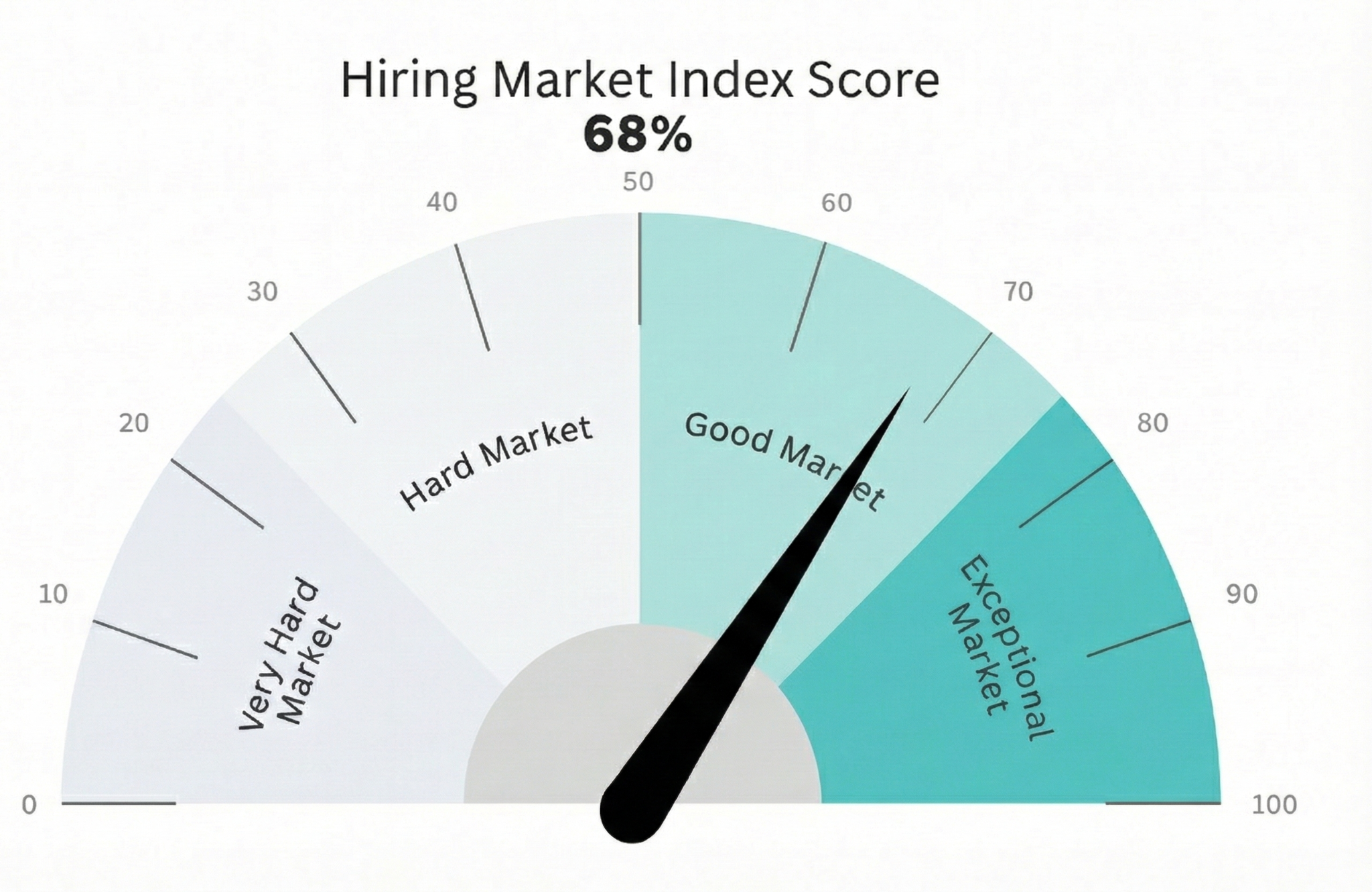
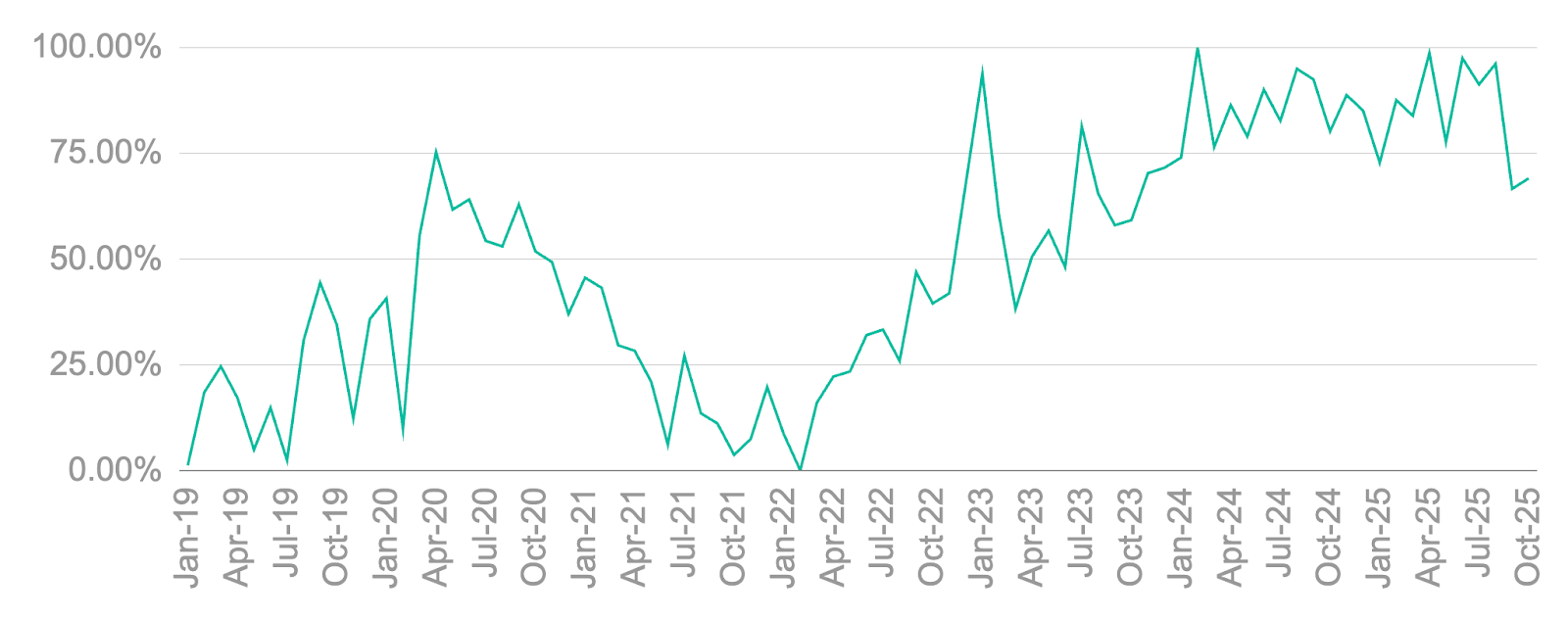
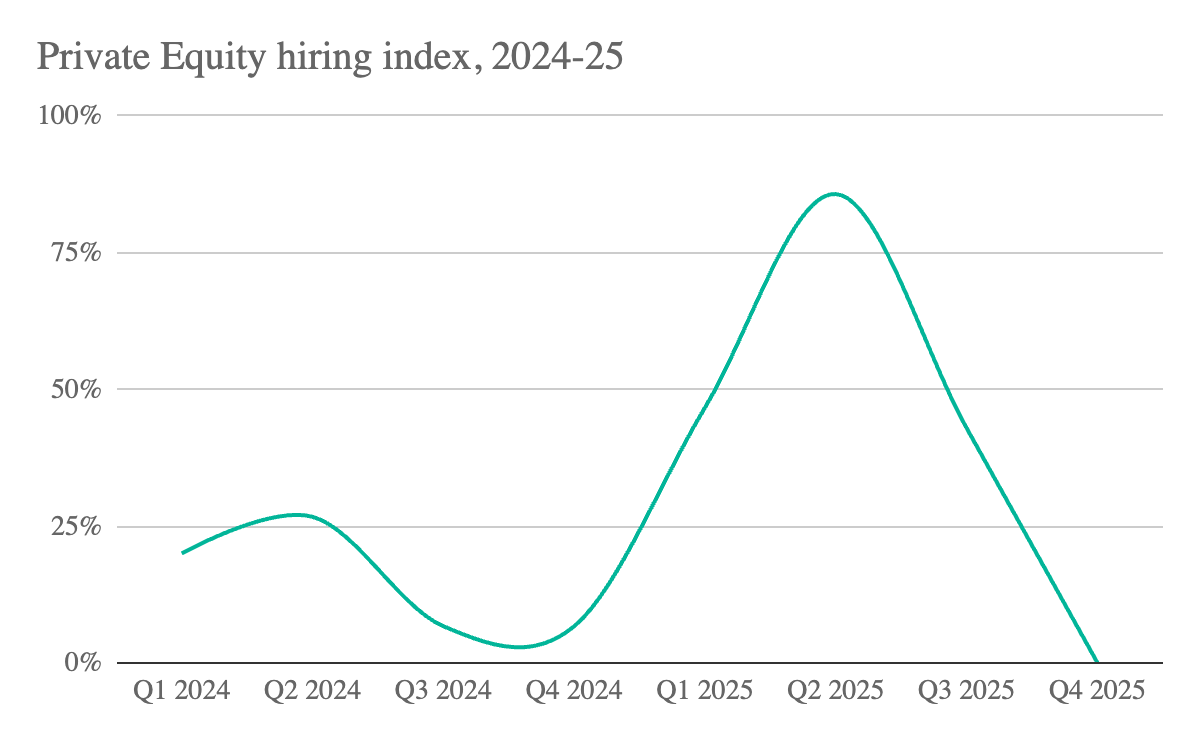
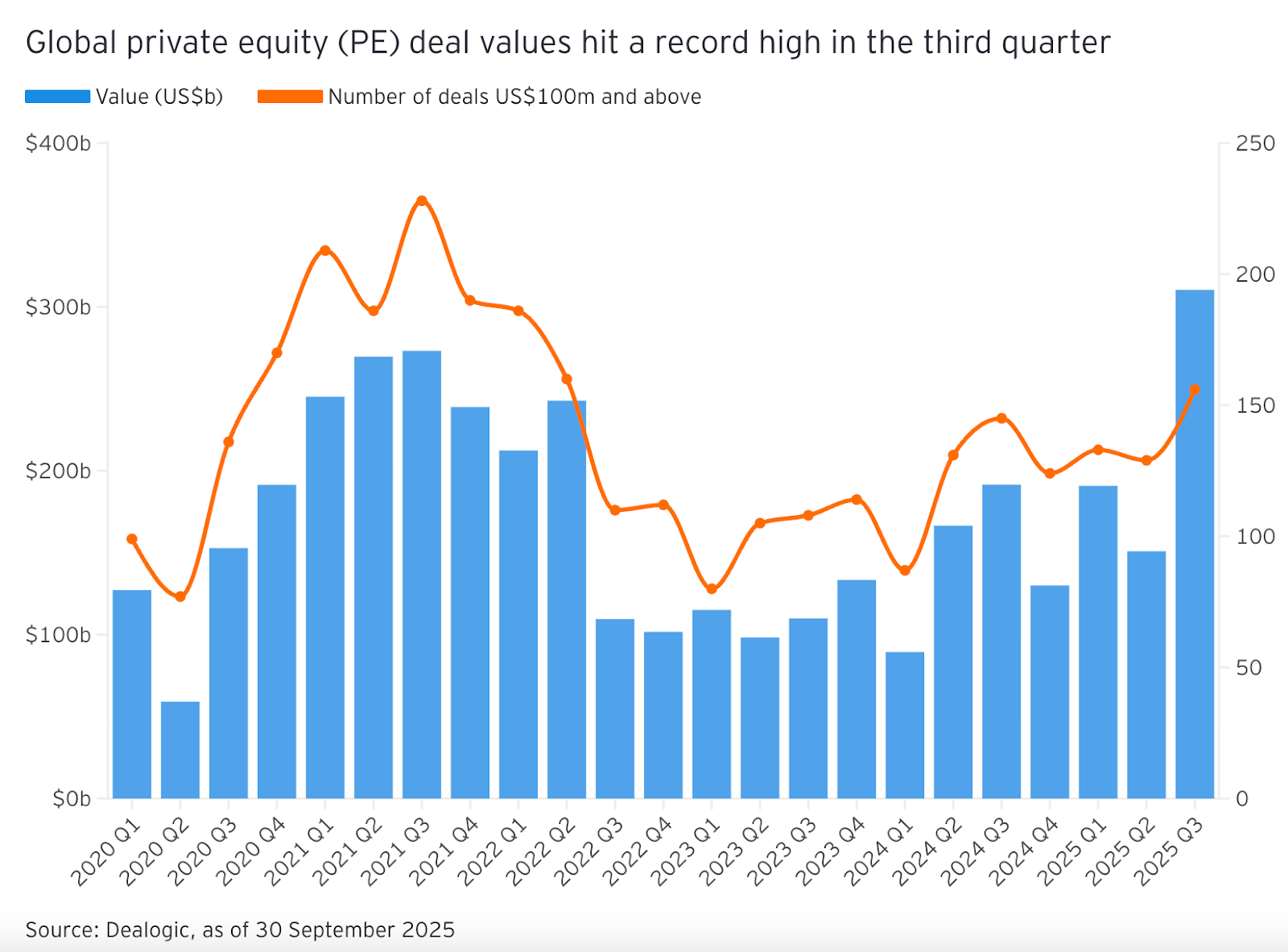
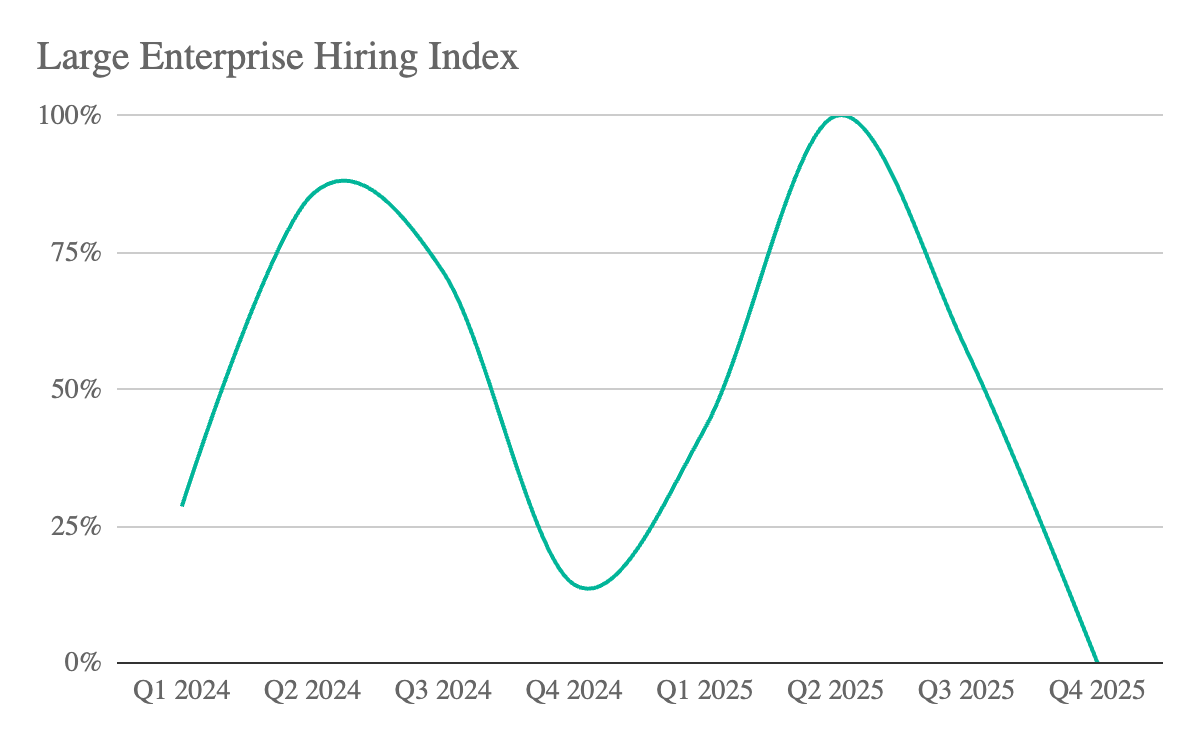
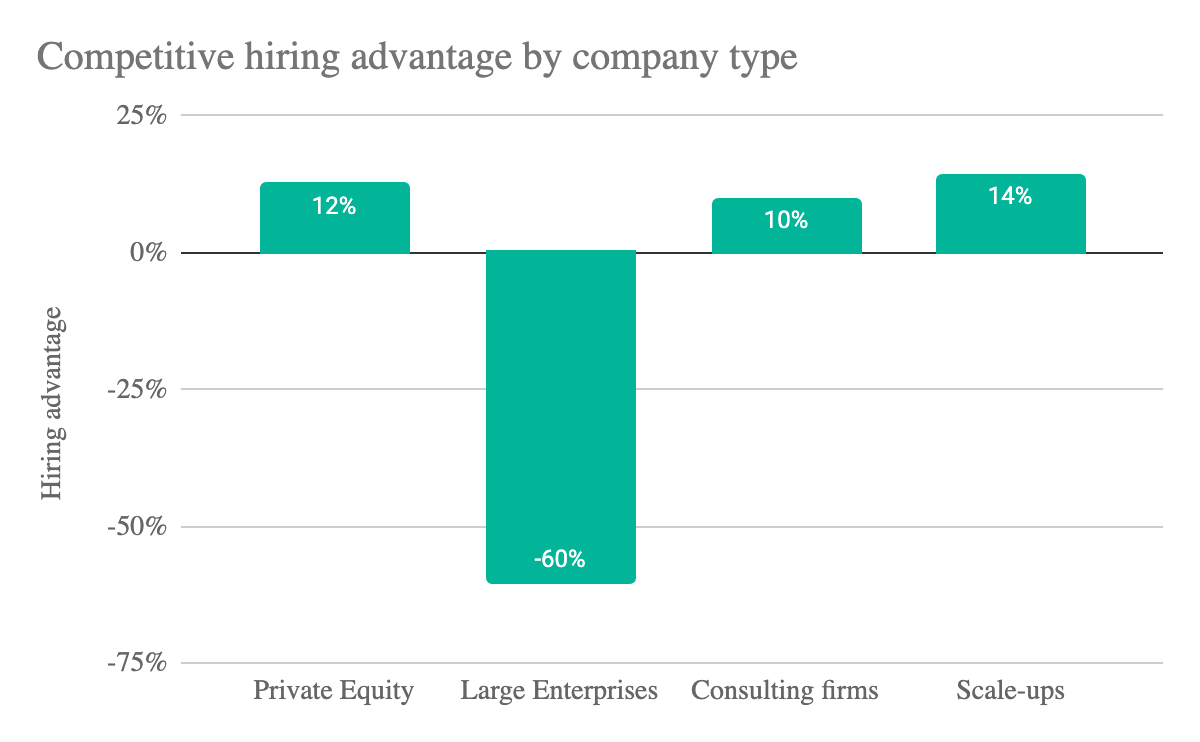
.jpg)

.png)
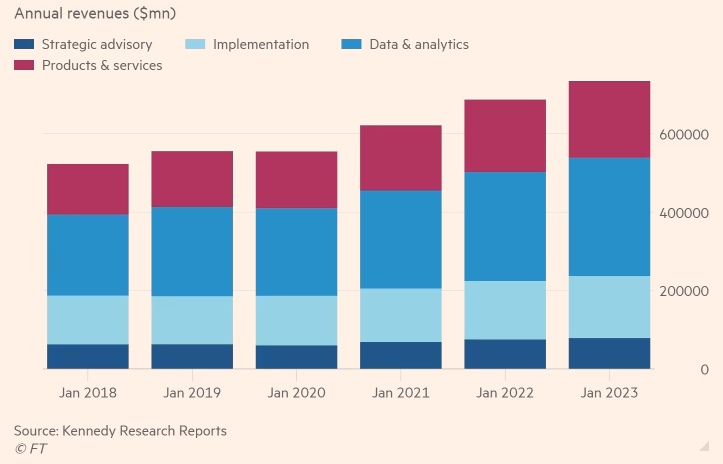
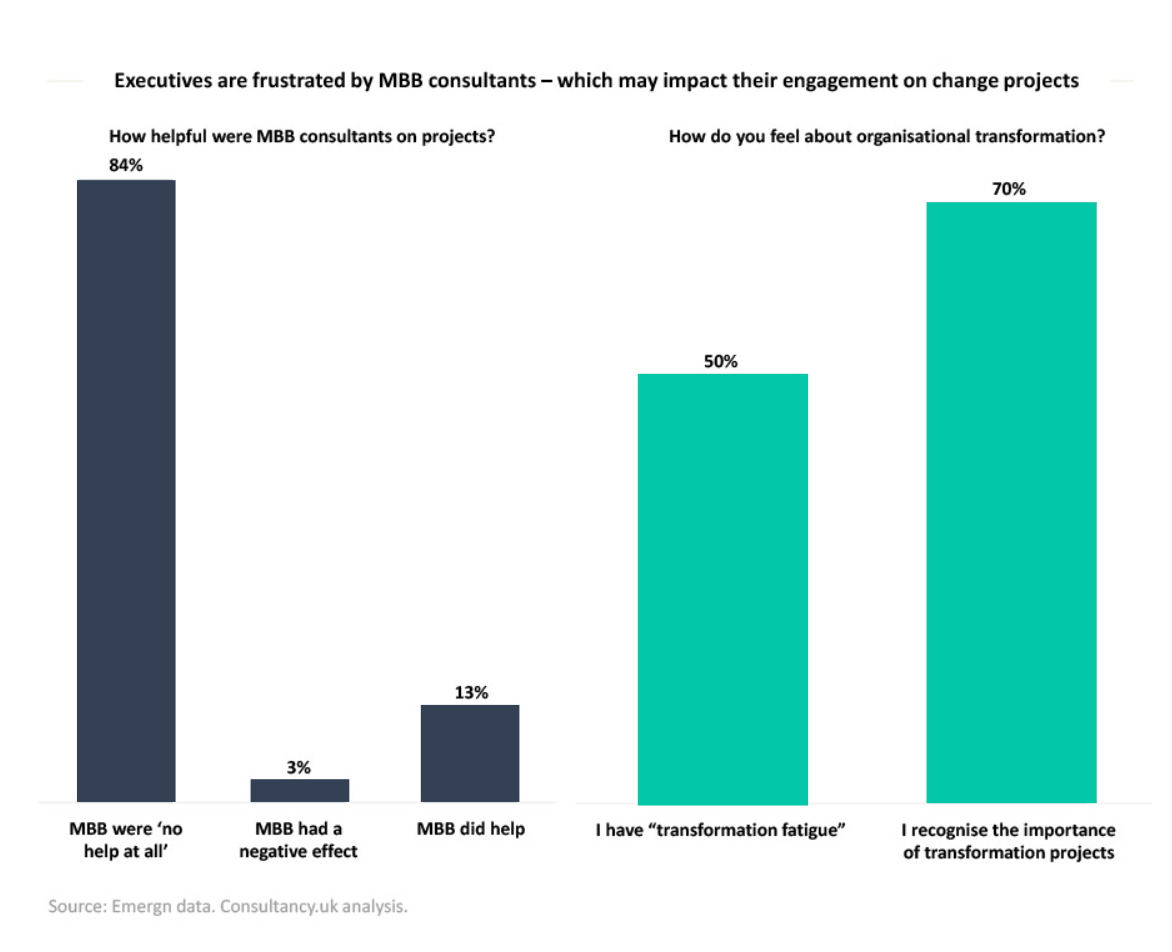
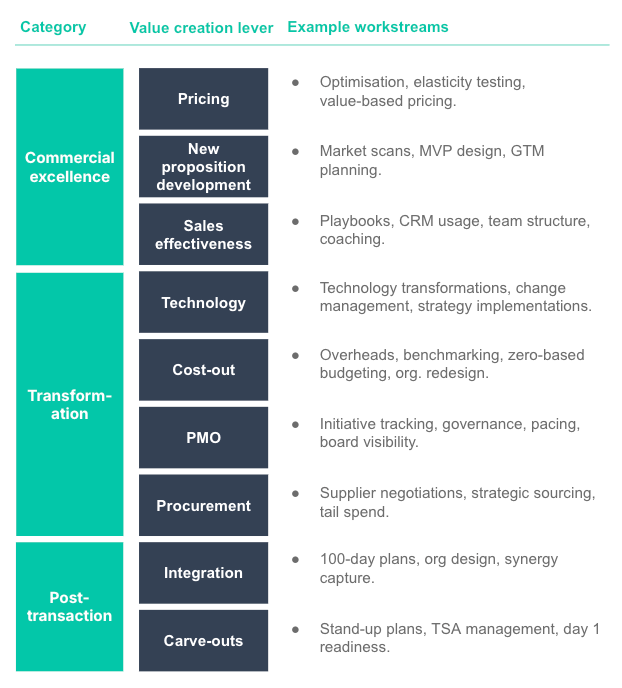
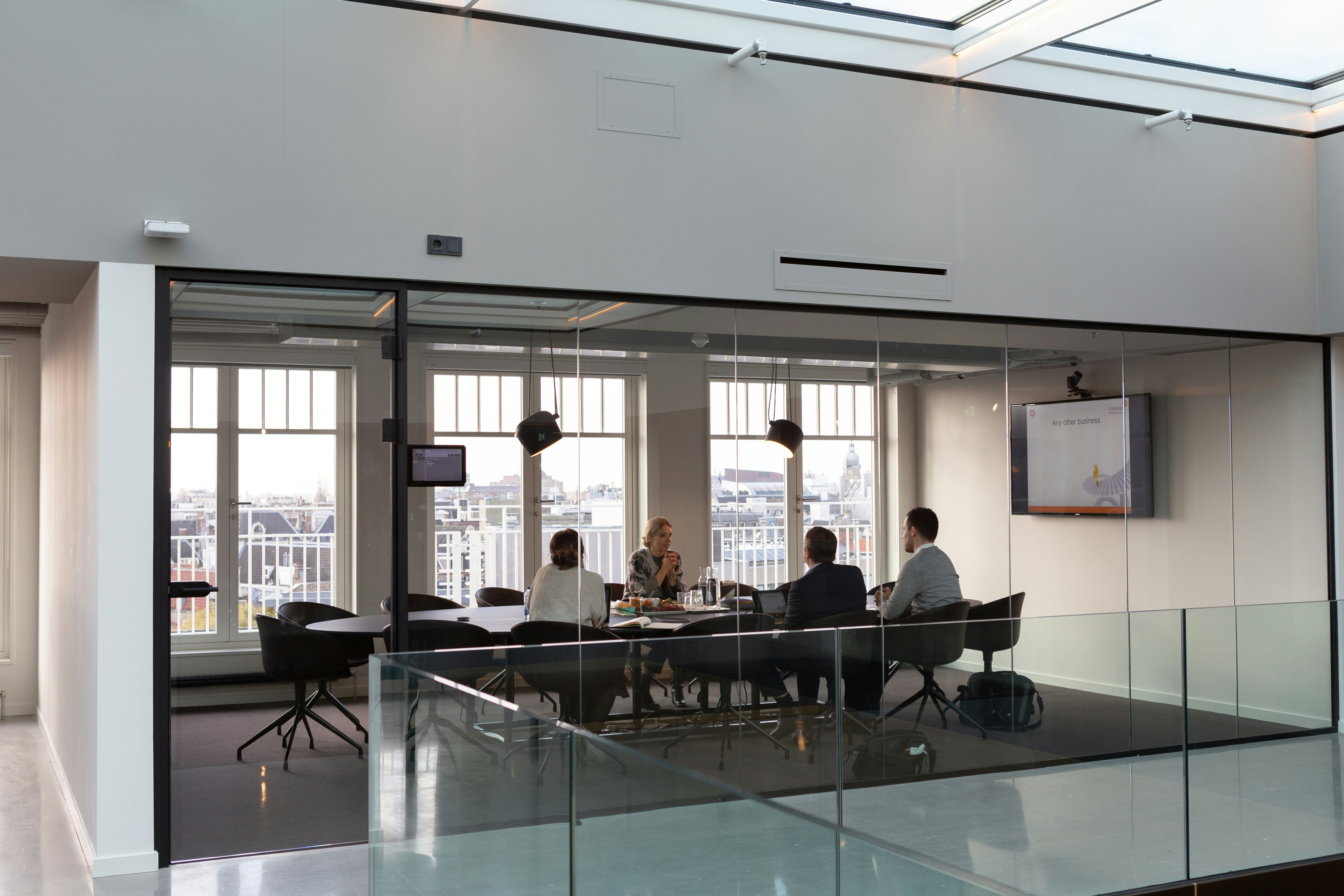
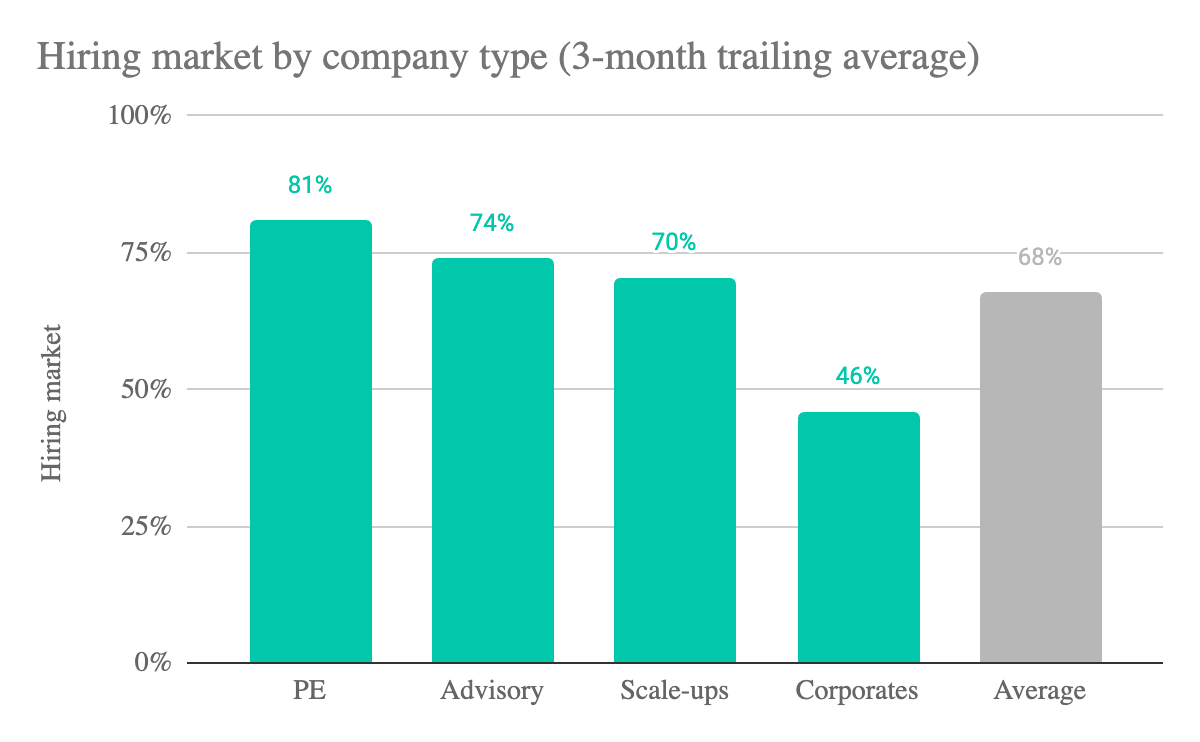
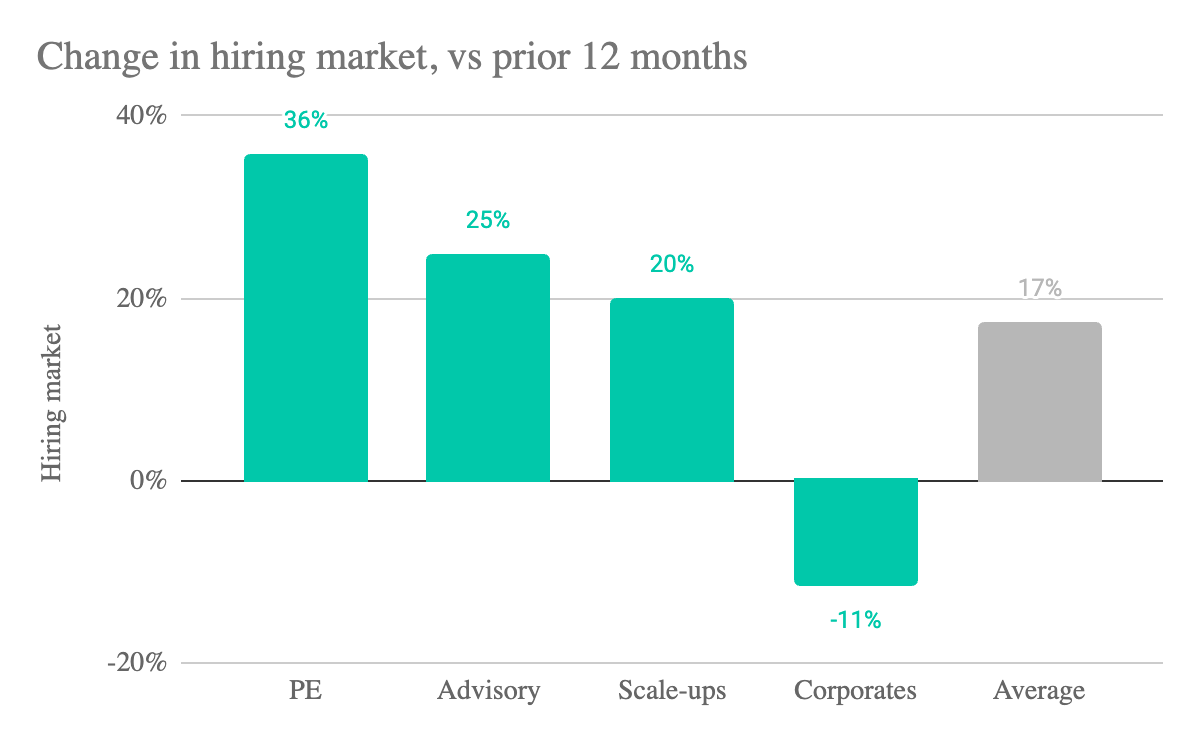


.jpg)
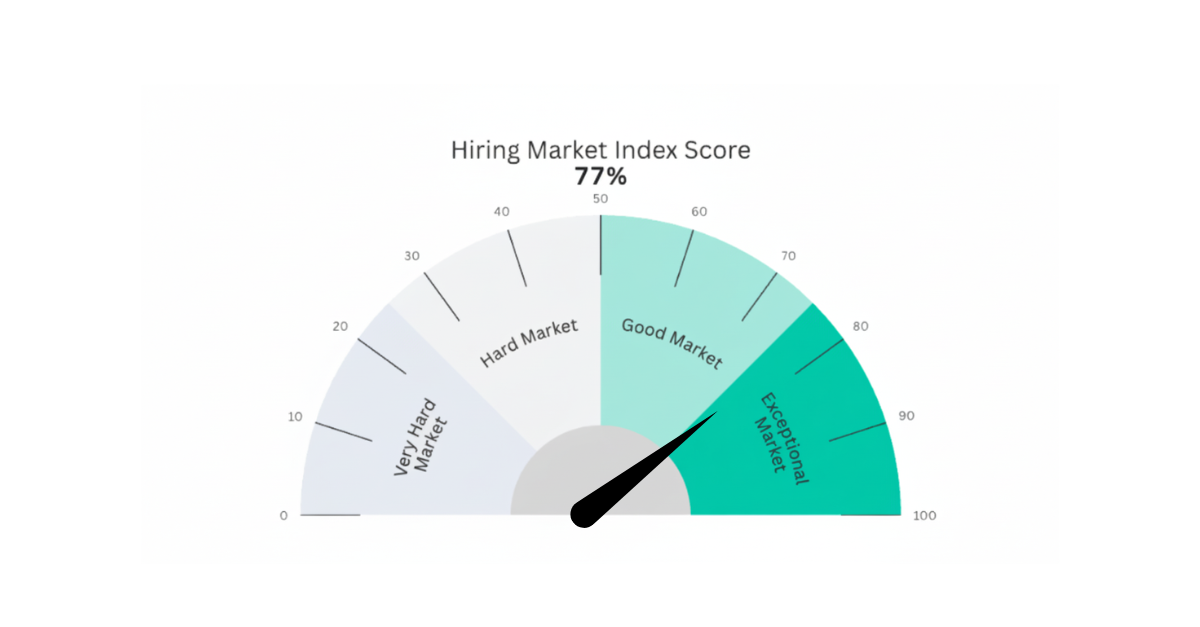
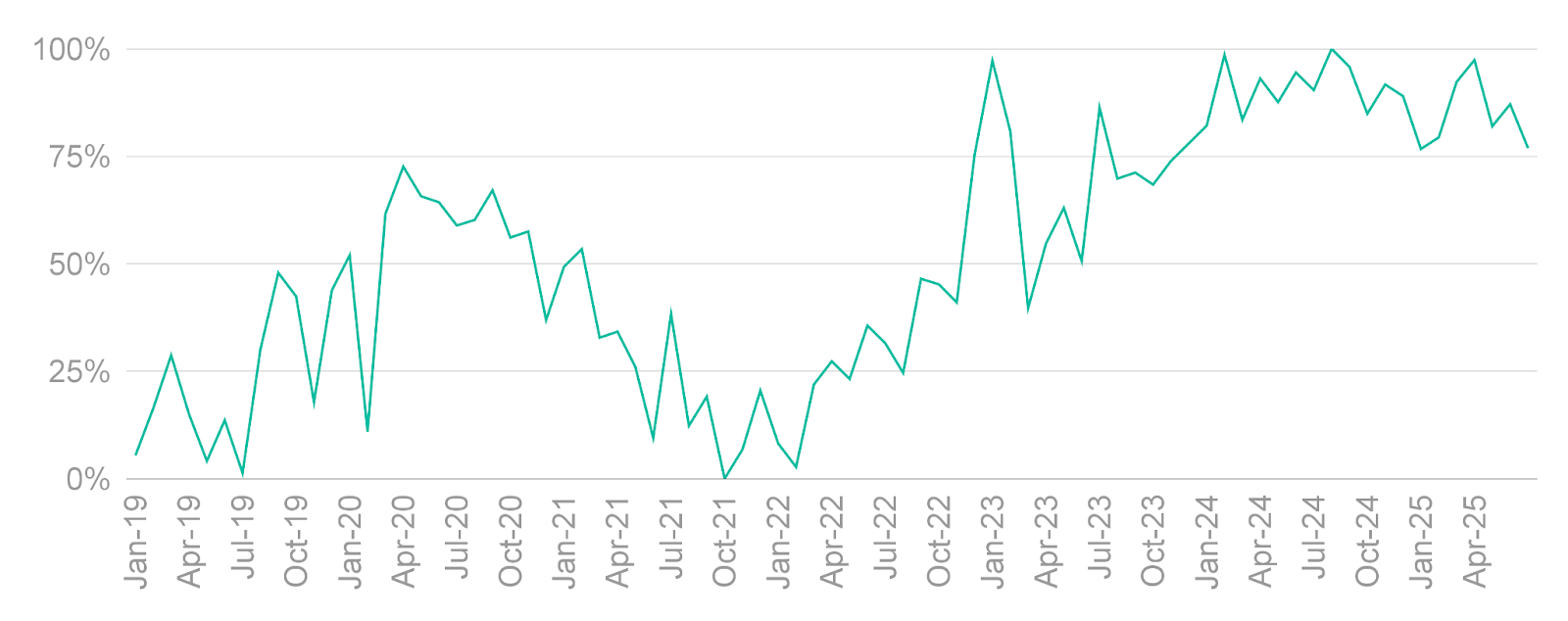
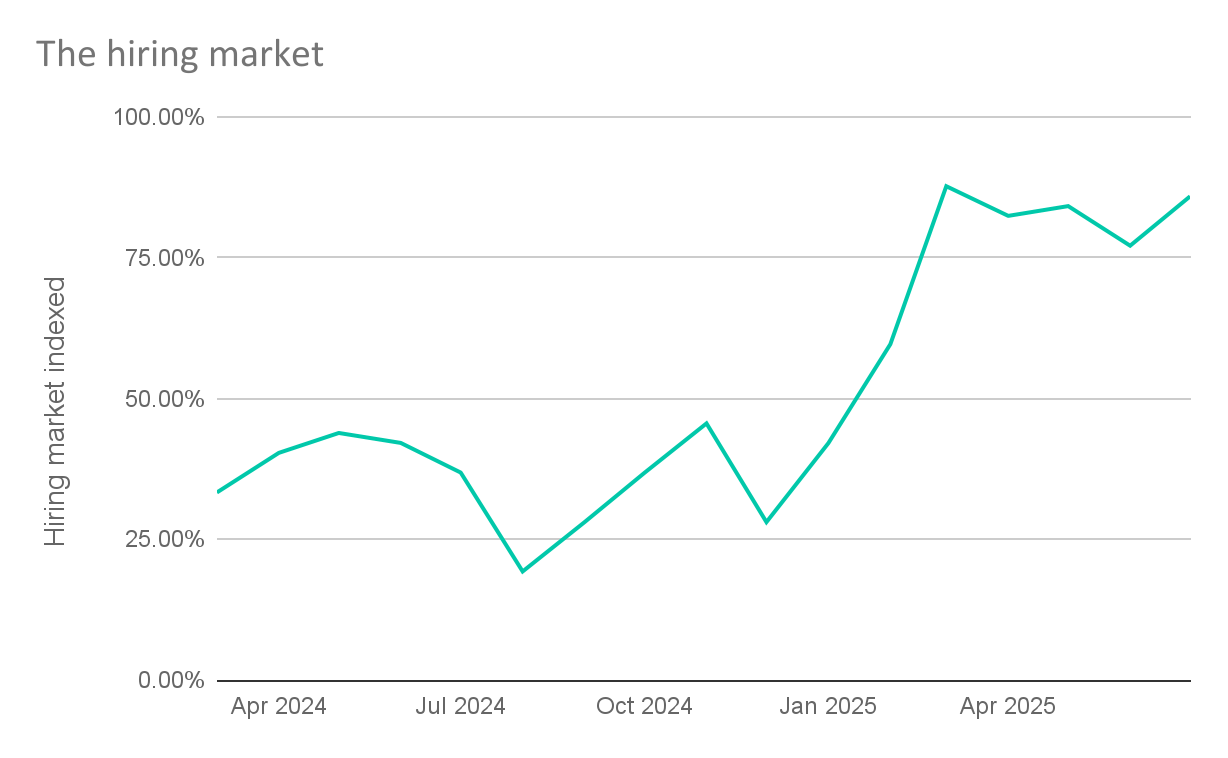



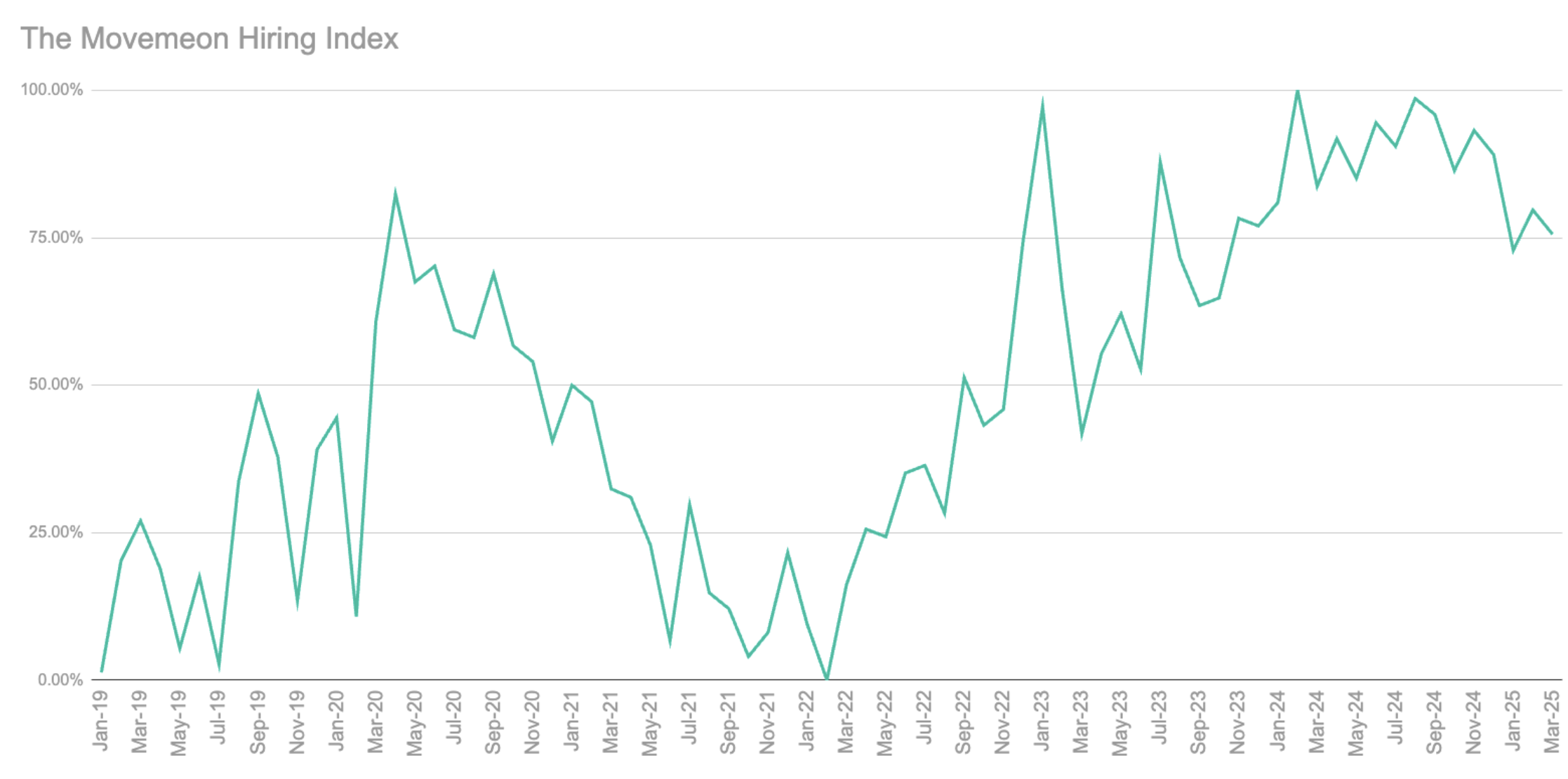



















.jpg)

